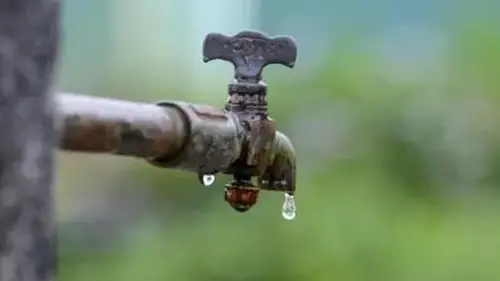
India is at a pivotal moment in addressing its water challenges, which includes scarcity, pollution, uneven distribution, and over-extraction of groundwater. Insights from the World Economic Forum indicates that the country could face significant water supply shortages between 2025 and 2027. Furthermore, the NITI Aayog Composite Water Management Index reveals that over 600 million people already experience high water stress, underscoring the urgent need for sustainable water management.
While these challenges are daunting, they also present an opportunity for transformative action. By fostering public-private partnerships (PPPs), India can harness government initiatives, private sector innovation, and community participation to build scalable, long-term solutions. These collaborations have the potential to enhance water accessibility, improve sanitation, and drive sustainable growth—bringing the nation closer to its vision of clean water and sanitation for all.
PPPs bring together government agencies, private enterprises, and non-profits to develop resilient solutions. Each stakeholder plays a vital role in ensuring long-term impact, making this collaboration essential for meaningful change.
The government lays the foundation by providing policy direction, regulatory frameworks, and financial support, enabling large-scale projects that ensure sustainable water management. However, policies alone cannot create impact unless they translate into action at the grassroots level. This is where non-profits and NGOs step in, working closely with communities to restore water sources, promote conservation, and advocate for effective policies. Their deep local connections help implement solutions that are both practical and inclusive. At the same time, the private sector brings in technological expertise, infrastructure investments, and operational efficiencies that make water management more effective. Through corporate social responsibility (CSR) initiatives and impact-driven projects, companies support conservation efforts, develop smart water management systems, and introduce advanced treatment technologies. Their ability to integrate data-driven solutions, automation, and future-proof business models strengthens long-term water security.
When these forces come together, they create more than just temporary relief—they build resilient systems that ensure access to clean water, restore ecosystems, and drive lasting conservation efforts. By leveraging their strengths, PPPs are not just solving today’s water challenges but are laying the groundwork for a future where clean and reliable water is accessible to all.
One of the biggest advantages of PPP water initiatives is the sense of community ownership they foster. By involving local residents in the planning, execution, and monitoring phases, these projects become self-sustaining and deeply rooted in the community. Tata Motors' successful collaborations with local governing bodies and non-profits exemplify how PPP models can be scaled across India to create widespread impact, significantly improving the livelihoods of communities in water-stressed regions. For instance, Tata Motors signed an MoU with the government of Maharashtra to restore 1,000 water bodies in over 20 districts in the state's water-stressed areas. This initiative builds on the success of last year's efforts under the Gaal Mukt Dharan Gaal Yukt Shivar Yojana. In partnership with the soil and water conservation department of Maharashtra, NAAM Foundation, and local communities, the company rejuvenated and restored 356 water bodies. This effort demonstrated the potential for scalable water conservation by removing accumulated silt, significantly improving groundwater recharge and increasing the water-holding capacity of reservoirs. As a result, over 350,000 rural citizens now benefit from enhanced water availability for both personal use and agriculture.
Such initiatives underscore the transformative power of community-driven, PPP-led water conservation projects. By empowering local communities and fostering sustainable practices, significant and lasting impacts can be made on water security and the overall well-being of residents in water-stressed regions.
India’s water challenges cannot be solved in silos. It requires the combined expertise, funding, and execution capabilities of the public and private sectors. The PPPs between the government, NGOs, and private companies are important to creating water infrastructures that ensure water security and empower local communities to take ownership of their resources. PPPs offer a sustainable solution to this pressing challenge.
To truly pave the way for a water-secure future, it is crucial for more businesses to step forward, invest in water sustainability, and work alongside government bodies and communities. With the right policies, partnerships, and people, India can transform its water landscape - one restored water body at a time.
This article is authored by Vinod Kulkarni, head, CSR, Tata Motors.